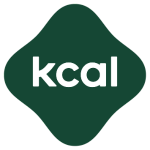You’ve been procrastinating until the beginning of next year to get more serious about your weight loss goals. Well, it’s the time to finally fulfil your weight loss resolution. No more excuses it’s time to take action NOW towards getting the body you want. Here are 5 quick tips to kick-start your weight loss journey today!
1 – Cut Your Carb Intake
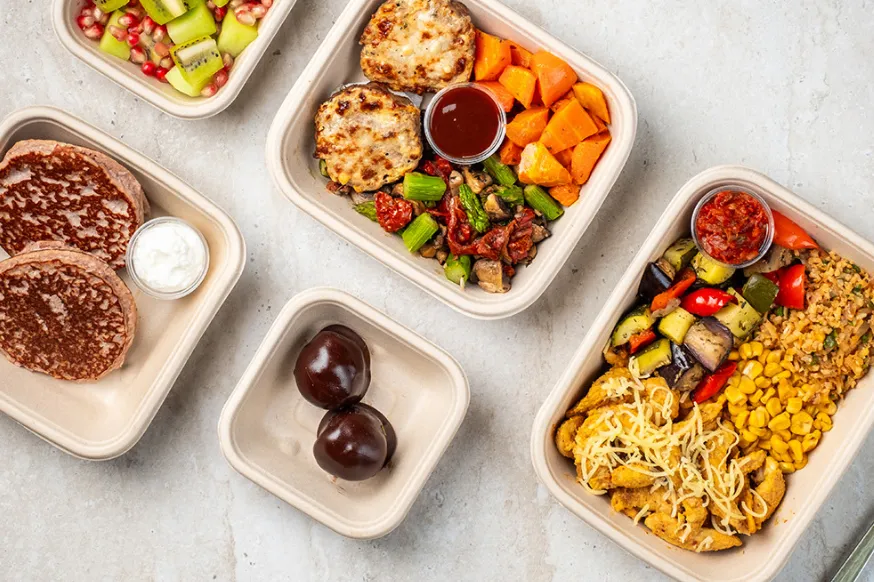
Cutting back on carbs from your diet will make you lose weight fast. It has been shown to cause 2 to 3 times more weight loss than cutting back on your fat intake. How reducing carbs makes you lose weight is very simple. Carbs are converted into simple sugars, the number one source of energy in your body. When you reduce your carbs intake, there are limited amounts of simple sugars in your body to be used for energy and as a result your body refers to your fat stores as a source of energy – this is when your body starts burning fat.
Make it Work: Aim to reduce your carb intake to less than 30% of your diet. Focus on eating only complex and natural sources of carbs that are high in fibers. Include whole grains like oats, quinoa and bulgur, starchy vegetables like pumpkin and sweet potatoes and green leafy vegetables.
2 – Protein With Every Meal
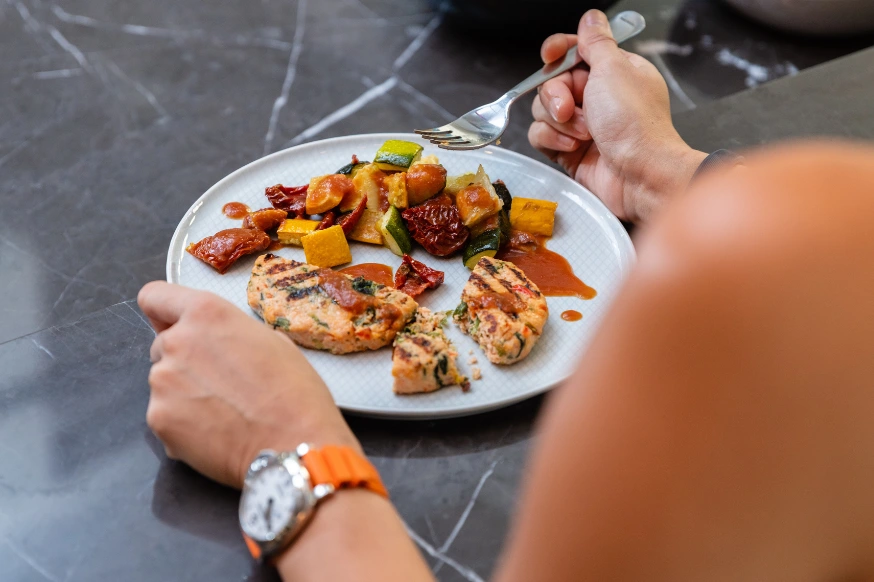
Protein is the most important nutrient when you want to lose weight. Diets high in protein help in boosting your metabolism and have a positive impact on your body composition. People who ate more protein were shown to burn 80 to 100 more calories per day. This is because protein has a higher thermic effect than carbs and fats – meaning that your body uses more energy or calories to digest protein and make use of it.
Also, increasing protein intakes was found to result in greater lean muscle mass and lower fat mass compared to diets equivalent in calories but lower in protein and higher in carbs. Maintaining your lean mass is very important when trying to lose weight because the higher your muscle mass, the higher your metabolic rate, the more calories you burn.
Make it Work: Make sure you have a good quality protein source with every meal. Have eggs for breakfast or add some whey protein powder to your morning oats. Eat chicken, lean meat or fish for both lunch and dinner.
3 – Include Healthy Fats In Your Meals
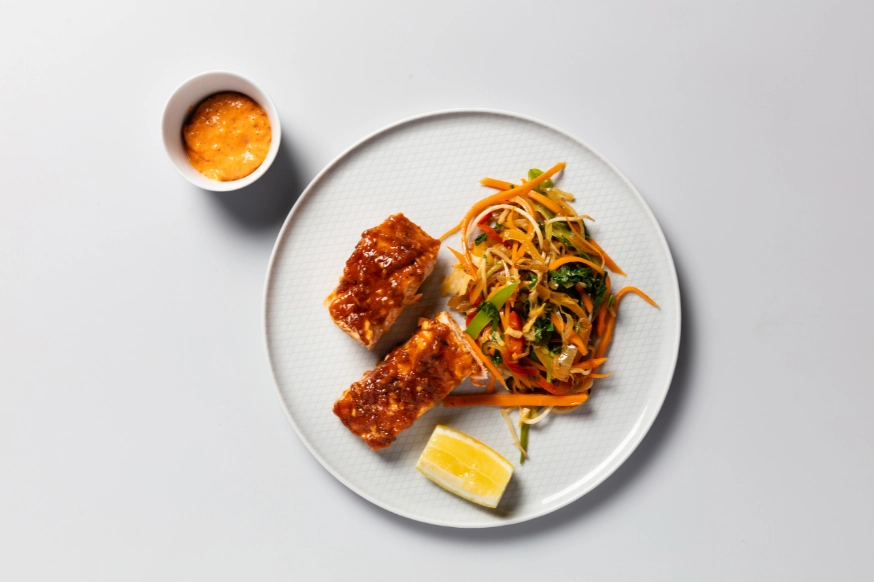
Most people think fat is the number one enemy when it comes to weight loss. But did you know that mono and polyunsaturated fats, the healthy fats, have been shown to improve weight loss when following a low carb diet. For example, those who ate almonds as part of their low carb diet had 56% more reduction in fat mass compared to those who were on a low fat diet similar in calories.
Those who included coconut oil in their diet had improved fat loss, especially from their belly fat stores. In fact, some types of fat are not stored as fat: Omega-3, which is one type of polyunsaturated fat found in almonds, are used to build the outside layer of your body cells. Also, medium chain triglycerides, a type of saturated fat found in coconut oil, are quickly absorbed into your body and used as a quick source of energy.
Make it Work: Include Omega-3 rich foods like walnuts, salmon, tuna and flaxseeds in your diet and don’t forget other healthy fats like avocados and olives. Use olive oil in your salad dressings and some coconut oil when cooking!
4 – Avoid Sugar
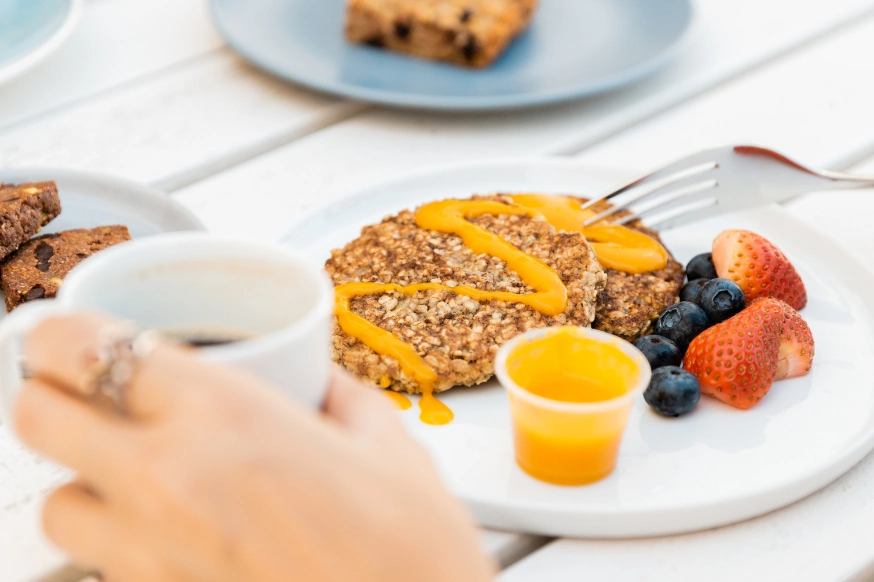
Sugar will blunt your fat burning process. When you eat something that has sugar, your body releases insulin – the hormone that stabilizes your blood sugar levels. Insulin picks up sugar from your bloodstream and burns it instead of fat.
Avoiding sugar doesn’t only mean avoiding refined white sugar but also foods that are high in hidden sugar like breakfast cereals, instant oatmeal, low fat fruit yogurts and granola bars. Although advertised as “high in fiber” or “low in fat”, these foods are processed and have added sugar. For example, a container of low fat fruit yogurt may have up to 25-30g of sugar, equivalent to 5 teaspoons!
Make it Work: Avoid refined white sugar; remove it from your coffee or tea. Instead, use stevia a natural low calorie sweetener derived from a plant. Avoid sweetened beverages like soft/ fizzy drinks and juices. Avoid processed desserts and most low fat products.
5 – Watch Your Portions
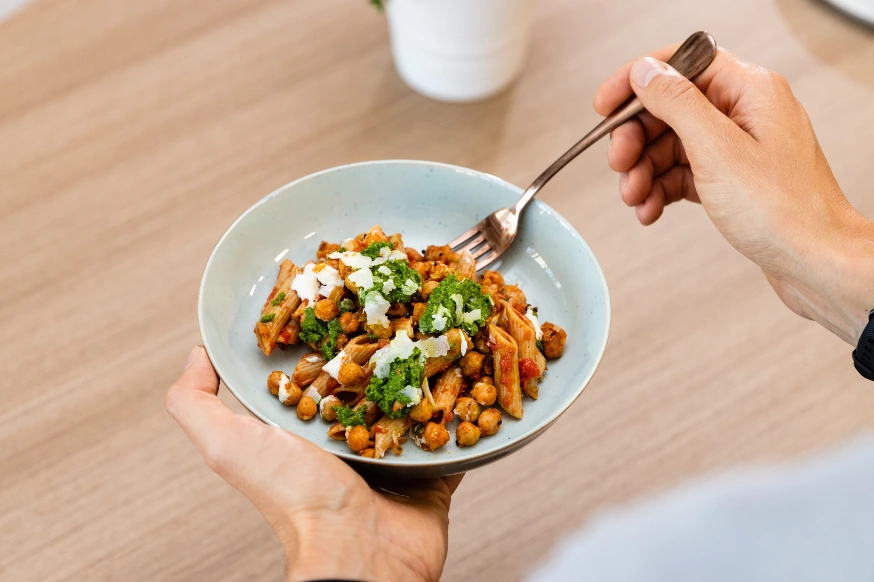
You could be reducing your carbs, avoiding sugar and increasing your protein intakes but at the same time under or overeating. In order words, you’re not consuming the right amount of calories for your specific needs. Many neglect calories when trying to lose weight. You have to be on a caloric deficit of 500 kcal per day to lose body fat. If the caloric deficit is too little, you won’t lose weight. If the caloric deficit is huge, you may lose muscle mass which will slow down your metabolism. Calories requirements are different from person to person. Once you know the amount of calories you need, count them! It may be time consuming but you’ll get better results by tracking.
Make it Work: Follow a diet plan. Calculate how many calories you need and make sure you’re on a deficit of 500 calories to lose weight. People were found to do better, succeed faster when on a plan. Prepare your meals in advance using proper measuring tools.
We Make Your Life Easier: Visit our offices and let a nutritionist advise you on how many calories you need to lose weight based on your age, weight, gender and activity levels. You don’t have to count calories nor prepare your food. We do the job for you! Sign- up for Kcal extra meal plan- it is a calorie controlled meal plan, rich in protein and healthy fats.
Written by Dona Maria Mesmar, Nutrition Manager
References
Foster, Gary D., et al. “Weight and metabolic outcomes after 2 tears on a low-carbohydrate versus low-fat diet: a randomized trial.” Annals of Internal Medicine 153.3 (2010): 147-157.
Pasiakos SM, et al. Effects of high-protein diets on fat-free mass and muscle protein synthesis following weight loss: a randomized controlled trial. The FASEB Journal. 2013. 27(9): 3837-47.
Wien, M. A., et al. “Almonds vs complex carbohydrates in a weight reduction program.” International journal of obesity 27.11 (2003): 1365-1372.
Assunçao, Monica L., et al. “Effects of dietary coconut oil on the biochemical and anthropometric profiles of women presenting abdominal obesity.” Lipids 44.7 (2009): 593-601.
